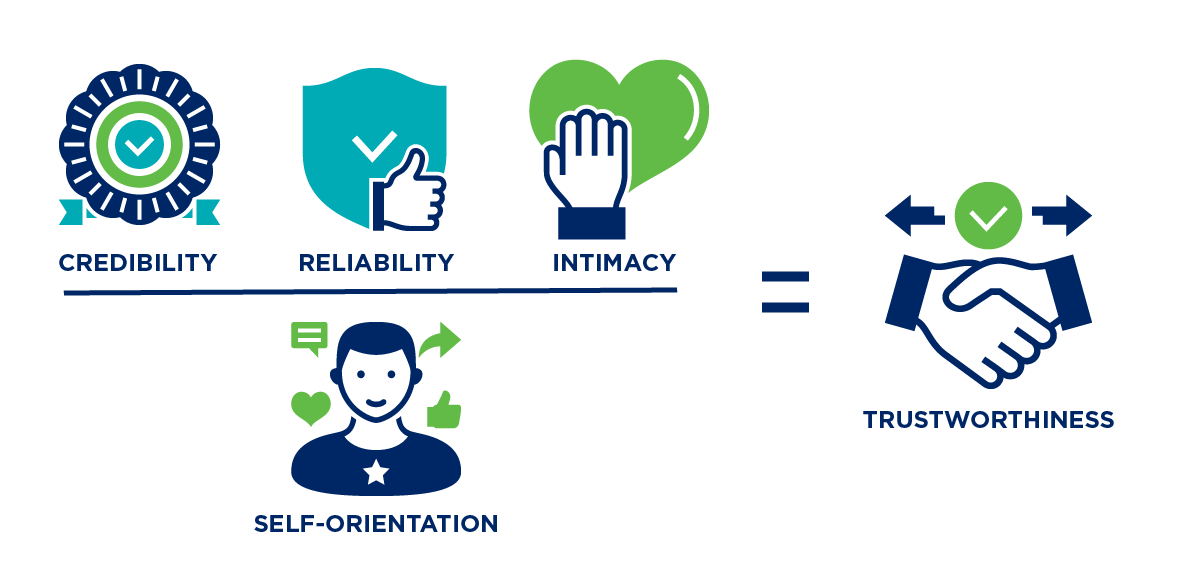Understanding the importance of trust in effective collaboration
Collaboration is more than just a business buzzword; it’s the foundation which high-performing teams are built on. The act of working together is a straightforward concept to understand, its people coming together to produce something. Sounds simple enough but there is a lot to unpack in that statement. Effective collaboration is underpinned by the quality of relationships within the team. In high-performing teams, these relationships are fundamentally built on trust.
The common saying "teamwork makes the dream work" encapsulates this perfectly. Teams that achieve remarkable results do so because their members have fostered relationships rooted in trust. But why is this so important?
The business case for trust
Research makes a compelling case for organisations to prioritise building trust within their teams. Compared with people at low-trust companies, people at high-trust companies reported:
74% less stress
106% more energy at work
50% higher productivity
76% more engagement
29% more life satisfaction
40% less burnout than their low-trust counterparts.
These figures, from research conducted by Professor Paul J. Zak [1], speak volumes about the tangible impact of trust in the workplace. The research found that building a culture of trust makes a meaningful difference and has a lasting effect on talent retention or performance. Employees in high-trust organisations are more productive, have more energy at work, collaborate better with their colleagues, and stay with their employers longer than people working at low-trust companies. They also suffer less chronic stress and are happier with their lives, and these factors fuel stronger performance.
The foundation of high-performing teams
Patrick Lencioni, the author of "The 5 Dysfunctions of a Team" [1], emphasises that trust is the cornerstone of high-performing groups. He differentiates between predictive trust - believing people will do what they say because they have in the past - and vulnerability-based trust. The latter involves being comfortable enough to admit mistakes, acknowledge weaknesses and share personal information without fear of judgment or punishment. Lencioni reasons that this level of openness fosters an environment where team members can engage in honest debates and challenging conversations. As a result, individuals can truly be themselves, reducing the need to spend energy on self-protection. This ultimately allows the team to focus more effectively on achieving results safely and efficiently.
The trust equation: a framework for building trustworthiness
For those who appreciate facts, logic and structure, the trust equation offers a useful framework. It breaks down the concept of trust into distinct attributes, helping individuals understand how to enhance their trustworthiness. These attributes are:
Credibility: Actions that inspire others' confidence in you.
Reliability: Behaviours that demonstrate dependability to others.
Intimacy: Ways to create a safe and welcoming environment.
Self-orientation: Methods to show genuine care and concern for others
By considering these aspects, people can better understand how to build trust with others.
Investing in relationships
Building trust within a team doesn't happen overnight. It requires time, shared experiences and a commitment to genuinely connect with one another. A good starting point is your next team call or meeting. Before getting down to business and diving into the agenda, take a moment to ask how everyone is doing, connect with each other and find common interests. Be willing to ‘go first’ and get the ball rolling by sharing something about your life that the team may not know about. Establishing a human connection before addressing tasks can pave the way for more meaningful and productive collaboration.
Effective collaboration elevates contribution
Trust is an important foundation within teams aiming for high performance. It reduces stress, increases engagement and leads to greater contribution from employees. By fostering an environment of vulnerability-based trust and investing time in building relationships, teams can become more productive, collaborate better and have more energy for their work. Research has shown that collaboration fuelled by trust is the secret ingredient to turning group efforts into group successes.
Do you want to encourage high-performing teams in your workplace?
People contribute at their highest level when they have the right tools and capabilities to work productively in their role. In our “Collaboration – the importance of trust course”, we explain the relationship between trust and achieving great results as a team.
We provide individuals and teams with the tools and skills to foster a culture of trust and open collaboration that is free of judgement – and leverages the trust equation.
As a result of attending our course, your employees will understand why building trusting relationships is critical to high performance and what actions they can take to improve relationships, and collaboration and to contribute to the organisation at a higher level. Our toolkit will support their new thinking and set your team on a path to success.
[1] The Neuroscience of Trust, Harvard Business Review, 2017

